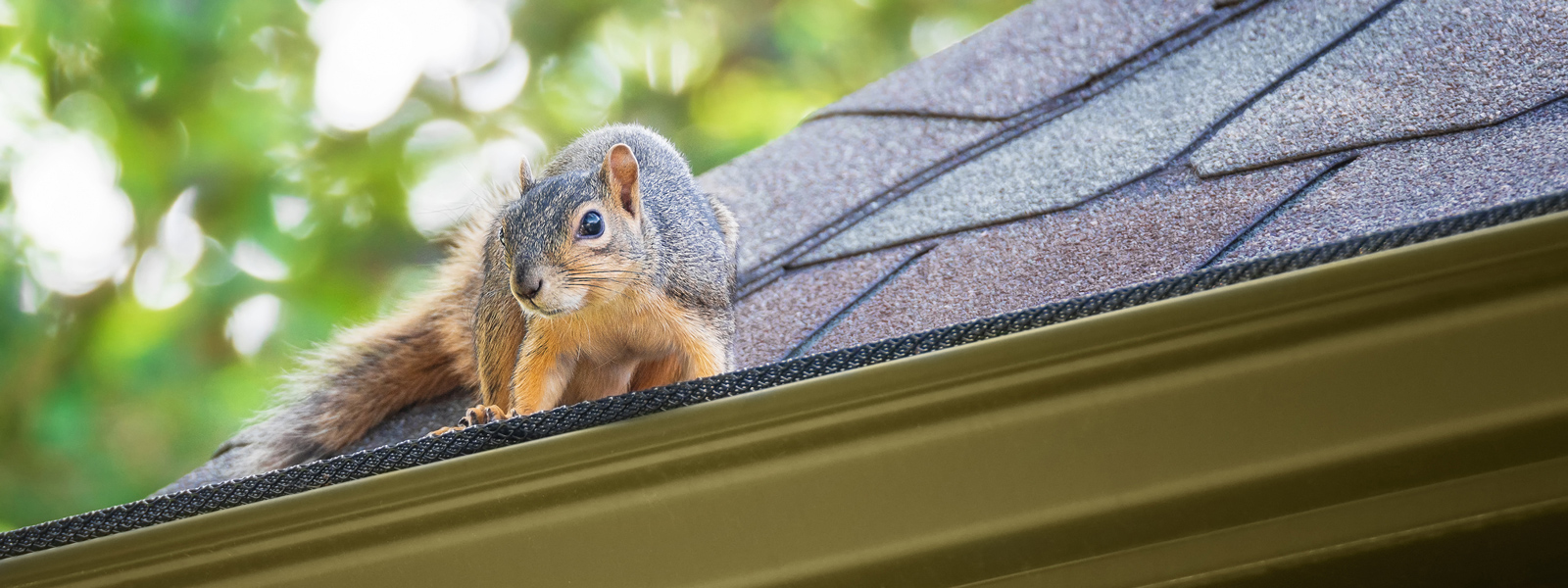Humane Rodent and Dead Animal Removal: Local Experts Near You.

Humane Rodent and Dead Animal Removal: Local Experts Near You.
Quickly and discreetly remove rodents and dead animals from your home. Find a trusted professional near you.
If you are having a problem with a wild animal, please select your city/town in Georgia from the map or list above. This Georgia animal control directory lists the phone numbers of professional wildlife removal experts throughout Georgia. These nuisance wildlife control operators deal with conflicts between people and wildlife such as squirrels living in an attic, or raccoons digging through the trash can. Call the licensed and insured professional listed here, and get the problem taken care of once and for all.
There are many Georgia pest control companies, but most of them treat for insect problems, and have little experience dealing with wild animals. Our specially trained technicians have the specific knowledge and equipment necessary for Georgia wildlife management. We are not extermination companies, we are professional Georgia trappers of wildlife. We are humane, and do a complete job - everything from animal damage repairs to biohazard waste cleanup.
Our Georgia animal control experts can handle many wildlife issues. Examples include Georgia bat control and removal. It takes an experienced pro to safely and legally remove a colony of bats. The same goes for bird control, such as roosting pigeons. We know all the species of Georgia snakes, and can safely remove them. We most commonly deal with animals in the home, such as rats or mice in the attic, or raccoons in the chimney. Select your area on the map above, and find a professional in your home town.
There are many Georgia pest control companies, but most of them treat for insect problems, and have little experience dealing with wild animals. Our specially trained technicians have the specific knowledge and equipment necessary for Georgia wildlife management. We are not extermination companies, we are professional Georgia trappers of wildlife. We are humane, and do a complete job - everything from animal damage repairs to biohazard waste cleanup.
Our Georgia animal control experts can handle many wildlife issues. Examples include Georgia bat control and removal. It takes an experienced pro to safely and legally remove a colony of bats. The same goes for bird control, such as roosting pigeons. We know all the species of Georgia snakes, and can safely remove them. We most commonly deal with animals in the home, such as rats or mice in the attic, or raccoons in the chimney. Select your area on the map above, and find a professional in your home town.
Georgia info: Georgia was one of the original 13 colonies, and now has a population of about 9 million people. Georgia is known as the Peach State and also the Empire State of the South. State Bird: Brown thrasher, State Game Bird: Bobwhite, State Marine Mammal: Right whale, State Land Mammal: Pogo Possum, State Insect: Honey bee, State Reptile: Gopher tortoise, State Fish: Largemouth bass, State Flower: Cherokee rose, State Wildflower: Azalea, State Tree: Live oak.
If you need assistance with a domestic animal, such as a dog or a cat, you need to call your local Georgia county animal services or SPCA for assistance. They can help you out with issues such as stray dogs, stray cats, dangerous animal complaints, pet adoption, bite reports, deceased pets, lost pets, and other issues. We have those numbers listed here for your convenience. If your city is not on our map, consult your local yellow pages or search for 'Animal Control' or 'SPCA' in your town.
If you need assistance with a domestic animal, such as a dog or a cat, you need to call your local Georgia county animal services or SPCA for assistance. They can help you out with issues such as stray dogs, stray cats, dangerous animal complaints, pet adoption, bite reports, deceased pets, lost pets, and other issues. We have those numbers listed here for your convenience. If your city is not on our map, consult your local yellow pages or search for 'Animal Control' or 'SPCA' in your town.
Atlanta, GA
37°F to 86°F
37°F to 86°F
- European honeybee
- American green tree frog
- Largemouth bass
- Gopher tortoise
- Brown thrasher
- Right whale
Georgia is a very hot, humid state, even in the regions of the north where mountains dot the landscape. It is full of lush vegetation, and has a variety of habitats. This state not only has tall, majestic forests, it also has Okefenokee Swamp, a 438,000 acre wetland on the Georgia-Florida border. As you might imagine, this swamp is home to a variety of creatures. These creatures, however, aren't just reptiles and amphibians. The marsh is made up of both wet and dry land, and mammals abound within its protected space. Okefenokee Swamp has black bears, white-tailed deer, and otters. It does, of course, have its fair share of water moccasin snakes, alligators, and turtles.
The rest of Georgia is also full of animals, and because the weather is so warm all year long, there is an abundance of reptiles and cold-blooded creatures not found in the northern states. Warm weather is also ideal for birds, and these birds can range in size from small robins to giant creatures with 8-foot wingspans.
Common pest animals in Georgia include armadillos, black bears, beavers, geese, coyotes, deer, wild hogs, rats, raccoons, squirrels, woodpeckers, and foxes. Not only do these animals enjoy what the warm temperatures have to offer as far as comfort, many of them live on the eggs and offspring from the array of reptiles, birds, and amphibians. Raccoons, in particular, are known to be raiders of nests in the hunt for eggs.
While there is an abundance of food year round for the creatures in this state, the human population of Georgia is so dense, contact with animals is inevitable. As people spread out into the wilds, animals find new ways to come by easy meals and easy shelter. Raccoons won't hesitate to leave the woods in favor of an attic when breeding season comes around, and all pest animals make special note of the homes that have garbage or food lying around outside.
In a state like Georgia, having small pest animals in the yard can eventually draw in larger predators. People living near bodies of water where alligators reside will regret having a plethora of small mammals lounging around the yard. It won't take long be the gator makes a mental note about where to get an easy meal.
The rest of Georgia is also full of animals, and because the weather is so warm all year long, there is an abundance of reptiles and cold-blooded creatures not found in the northern states. Warm weather is also ideal for birds, and these birds can range in size from small robins to giant creatures with 8-foot wingspans.
Common pest animals in Georgia include armadillos, black bears, beavers, geese, coyotes, deer, wild hogs, rats, raccoons, squirrels, woodpeckers, and foxes. Not only do these animals enjoy what the warm temperatures have to offer as far as comfort, many of them live on the eggs and offspring from the array of reptiles, birds, and amphibians. Raccoons, in particular, are known to be raiders of nests in the hunt for eggs.
While there is an abundance of food year round for the creatures in this state, the human population of Georgia is so dense, contact with animals is inevitable. As people spread out into the wilds, animals find new ways to come by easy meals and easy shelter. Raccoons won't hesitate to leave the woods in favor of an attic when breeding season comes around, and all pest animals make special note of the homes that have garbage or food lying around outside.
In a state like Georgia, having small pest animals in the yard can eventually draw in larger predators. People living near bodies of water where alligators reside will regret having a plethora of small mammals lounging around the yard. It won't take long be the gator makes a mental note about where to get an easy meal.
Georgia Wildlife Invading Homes: A Growing Concern
Georgia's landscape and climate make it an ideal habitat for a wide variety of wildlife. Unfortunately, this can also lead to problems for homeowners as animals seek shelter and food in residential areas.
As the human population continues to expand, encounters with wildlife are becoming increasingly common across the United States. One of the most frustrating and sometimes dangerous issues for homeowners is when animals find their way inside.
One of the most common culprits is the raccoon. These intelligent and adaptable creatures are skilled at finding ways into homes through small openings in roofs, chimneys, or vents. Once inside, they can cause damage to insulation, wiring, and furniture.
The specific types of wildlife that may invade homes vary depending on the region, but some common culprits in Georgia include:
To prevent wildlife from entering your home, consider the following:
If you have a wildlife infestation, it's important to contact a professional wildlife removal service. They have the experience and equipment to safely and humanely remove animals from your home and prevent future infestations.
By taking these steps, you can help protect your home and property from wildlife damage while also ensuring the safety of both humans and animals
As the human population continues to expand, encounters with wildlife are becoming increasingly common across the United States. One of the most frustrating and sometimes dangerous issues for homeowners is when animals find their way inside.
One of the most common culprits is the raccoon. These intelligent and adaptable creatures are skilled at finding ways into homes through small openings in roofs, chimneys, or vents. Once inside, they can cause damage to insulation, wiring, and furniture.
The specific types of wildlife that may invade homes vary depending on the region, but some common culprits in Georgia include:
- Opossums: These nocturnal marsupials can squeeze through surprisingly small holes.
- Squirrels: Both ground squirrels and tree squirrels can cause damage to homes and gardens.
- Bats: Bats may enter through small gaps in the roof or walls, potentially carrying diseases.
- Rodents: Rats and mice can squeeze through tiny openings and contaminate food.
To prevent wildlife from entering your home, consider the following:
- Seal up entry points: Inspect your home for any gaps or cracks in the exterior and seal them with caulk or metal flashing.
- Install screens: Use screens on windows and vents to deter flying animals.
- Remove attractants: Keep garbage, pet food, and bird feeders away from your home to avoid attracting wildlife.
If you have a wildlife infestation, it's important to contact a professional wildlife removal service. They have the experience and equipment to safely and humanely remove animals from your home and prevent future infestations.
By taking these steps, you can help protect your home and property from wildlife damage while also ensuring the safety of both humans and animals
